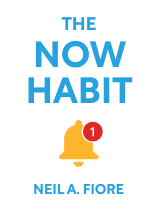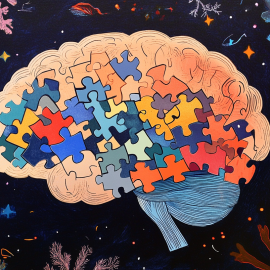

This article is an excerpt from the Shortform book guide to "The Now Habit" by Neil A. Fiore. Shortform has the world's best summaries and analyses of books you should be reading.
Like this article? Sign up for a free trial here.
Is procrastination the result of laziness or anxiety? How does anxiety drive procrastination?
Procrastination isn’t caused by laziness and can’t be fixed by trying harder. Instead, procrastination is a symptom of the fear and anxiety we sometimes feel about our work—and to solve it, you have to address those underlying emotional struggles.
Here are some tips on how to deal with procrastination and anxiety.
How to Deal With Procrastination Anxiety
In his book The Now Habit, Fiore says that sometimes we procrastinate because we’re worried about what can go wrong with a task or project. This happens especially when we artificially inflate the stakes of a task and demand perfection from ourselves. But worry and anxiety only worsen procrastination by making you more stressed. To defuse your procrastination anxiety, Fiore suggests that you:
1) Realistically determine the worst thing that could happen. Often this worst-case scenario (if we’re realistic about it) isn’t as bad as our unexamined worry makes us think.
2) Think about how you’d respond if the worst did happen. What would you do? How would you handle it? Whom could you turn to for help? Fiore says that questions like these help you see that even if something truly catastrophic happens as the result of failure, it won’t be the end of the world.
3) Think about what you can do right now to avoid the worst-case scenario and instead move yourself toward your goals. Doing so forces you to turn your worry into a practical and actionable plan.
(Shortform note: As Daniel Goleman explains in Emotional Intelligence, the ostensible purpose of worrying is to rehearse difficulties and dangers before they arise. The problem is that worry easily blows itself out of proportion by generating catastrophic scenarios and sweeping predictions of doom. Moreover, Goleman says, worry is a rigid and linear thought process, which means it saps your ability to think creatively and find solutions to whatever’s bothering you. Goleman agrees with Fiore’s suggestion that you challenge your worried thoughts, though he adds another question to the ones listed above: He advises that you ask yourself whether your worry is helping you or just getting in the way.)

———End of Preview———
Like what you just read? Read the rest of the world's best book summary and analysis of Neil A. Fiore's "The Now Habit" at Shortform.
Here's what you'll find in our full The Now Habit summary:
- Why people tend to put off the things that matter the most
- Where procrastination stems from, and why it doesn't mean you're lazy
- How to get more done while still maintaining a balanced life






